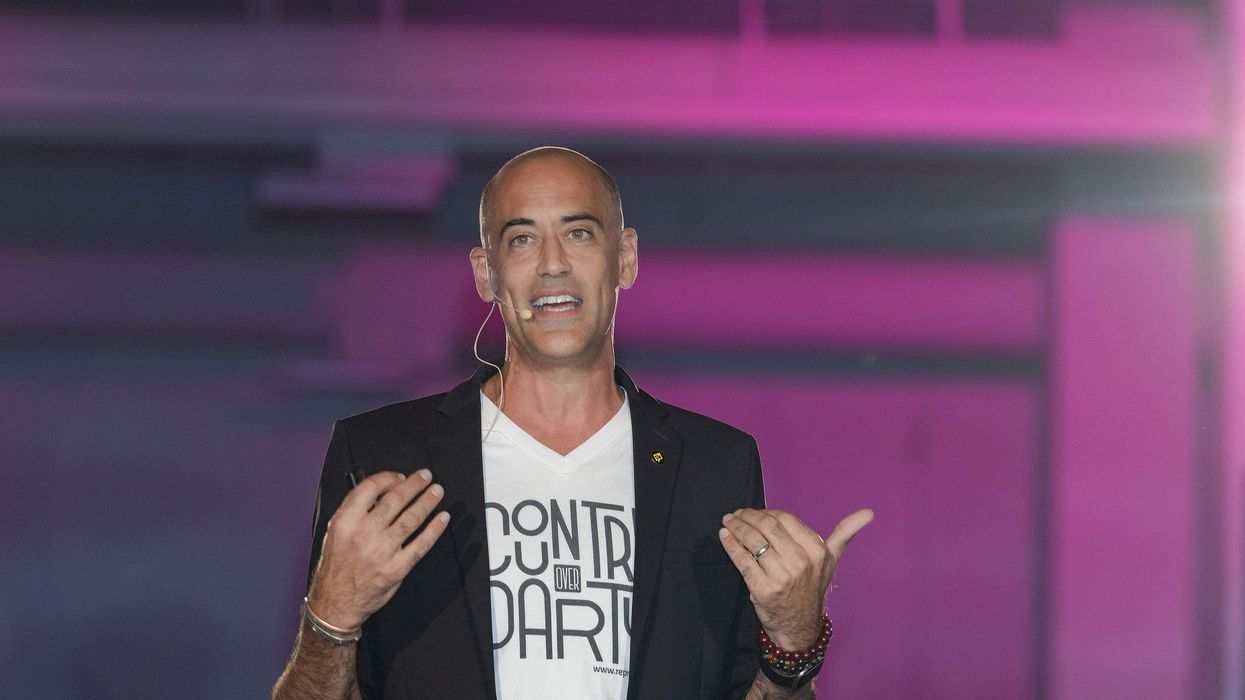Christen is a co-founder of the Inter-Movement Impact Project. He is also a lawyer, theologian, and senior officer in the Navy Reserve JAG Corps. All stated opinions are his own and do not represent the positions of the U.S. Department of Defense.
In September 2022, Debilyn Molineaux (then executive director of the Bridge Alliance and co-publisher of The Fulcrum) and I announced the return of in-person convenings and the inter-movement community building they would produce. Beginning with the National Association of Nonpartisan Reformers Annual Summit that December, the wave of major in-person convenings has since grown into a tsunami.
While there were too many in-person convenings for all but the most intrepid travelers (the Braver Angels National Convention, the American Democracy Summit Annual, the National Conference on Citizenship to name just three), these events provided critical opportunities for relationships to be built across inter-movement neighborhoods and at the national, state and local levels.
The visionary thinking emanating from and through these convenings is also helping create the “ operating system ” for how the inter-movement community of democracy and civic-health-promoting movements unites, organizes and works together for collective impact.
- Rachel Kleinfeld’s call to build “ a broad-based, multistranded, prodemocracy movement around a positive vision concretized in locally rooted action ” – while not presented at these events – was a popular topic of discussion and has ultimately become the foundational framework for the inter-movement community.
- Similarly, Scot Nakagawa and James Mumm of the 22nd Century Initiative developed a collective impact strategy for “blocking” authoritarianism and “building a multiracial pluralistic democracy.” After conversations expanded to include a third “B” – bridging – my teammate Walter Roberts expanded the framework to: “Bridging our differences, strategies, and efforts to block authoritarianism and build a multiracial pluralistic democracy.” The “3 B’s” now offer a vision for the range of movements to see themselves as part of the pro-democracy movement that Kleinfeld described.
- In many ways, the American Democracy Summit then added the punctuation by similarly calling for the many efforts to coalesce into one meta movement. This theme was exemplified by Represent.US CEO Joshua Graham Lynn’s rousing speech, in which he declared, “ This democracy is under threat and this democracy is under crisis. Many issues ... many organizations ... many solutions ... one movement! ”
- The recent Future of Citizenship Conference included a major step toward that “one movement” vision. Carolyn Lukensmeyer, a longtime leader in the deliberative democracy field, and Matt Leighninger, director of the National Civic League’s Center for Democracy Innovation, rolled out a preview of a game-changing “Healthy Democracy” ecosystem map that will provide a visual representation of the “constellation of organizations working to strengthen democracy in America.”
Without a map, activists have been like pieces of a jigsaw puzzle trying to put themselves together without having the picture on the box and with individual pieces only being aware of the presence of the pieces in the pile immediately surrounding them. To further the imagery, Lukensmeyer and Leighninger have already identified more than 10,000 puzzle pieces. Once complete, the map will allow peers to connect with each other, bring together local collective impact efforts across regions and aid funders in identifying where to invest by measuring impact.
With these examples only representing a fraction of the conference-generated, game-changing thinking, in-person gatherings are substantially furthering the emergence of the “broad-based, multistranded, prodemocracy movement” by building critical connections, developing a joint operating system, and increasing comprehension of who is actively participating.
The question now is: How can we be intentional about spreading, evolving, and organizing around these frameworks, efforts, and themes going forward?
Looking at in-person convenings from a pedagogical perspective, conveners of future in-person gatherings need to carry on and build on the themes and frameworks from prior convenings. Instead of viewing convenings as one-offs focused entirely on a specific field or group of attendees, convenings should be approached as a connected series of conversations that are aggregating to coalesce and prepare the inter-movement community for collective impact. This does not mean abandoning the uniqueness of the different convenings but instead is an argument for weaving together foundational ideas, themes and frameworks. The diversity of perspectives will be vital to coalescing and preparing the inter-movement community for opportunities to scale and to transform ideas into concrete action.
Future convenings should also ask questions like:
- “What needs to happen for the many democracy and civic-health-promoting movements to become more like a beloved community defined by a cross-organizational ethic of care, a shared purpose, and proactive actions to support each other?”
- “How can we organize, share power, work together, and relate to each other within and across movements in ways that reflect how we want American society and democracy to behave?”
- “What does transpartisan organizing to transform a partisan system really look like?”
The key will then be to memorialize and amplify the best ideas, innovations and learnings of each convening (a virtual community platform for sharing and further evolving these ideas, innovations, and learnings is needed).
Through diverse in-person and virtual gatherings of democracy and civic-health-promoting people and organizations, Kleinfeild’s “pro-democracy movement” and a beloved community of practitioners can become more fully realized and matured. And as Dr. Luke Bretherton observes, “ Our sense of the end we seek is already present in the meshwork of relations we participate in.”
If you are coordinating an upcoming in-person convening or are interested in facilitating conversations that further these efforts and themes at future convenings, please email me to continue the conversation.



















Trump & Hegseth gave Mark Kelly a huge 2028 gift